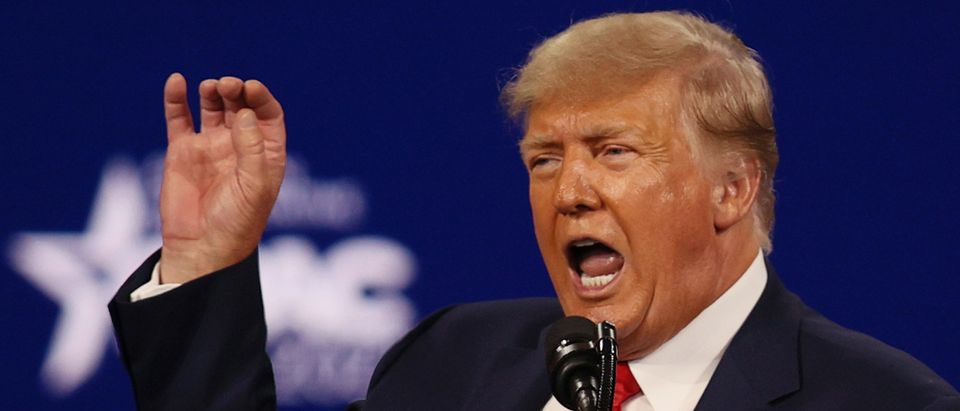Former President Donald Trump was heavily criticized for calling COVID-19 the “China Virus” and other similar terms, but geographic identifiers are commonly used to refer to COVID-19 variants.
Some have suggested that Trump referring to coronavirus as “China Virus” and “Wuhan Flu” lead to a rise in hate crimes against Asian-Americans. Is this distinction between the “China Virus” and, for example, the “South African variant” a double-standard or a legitimate difference? Several medical experts and scientists told the Daily Caller the difference lies in helping the public understand what’s happening.
So there’s an “Indian,” “Brazilian,” “South African,” and “British” variant? But it’s beyond the pale to name Covid as the “Wuhan,” or “China” virus.
Personally, I always preferred “CCP-19,” to remind the world who was responsible for the mendacity at the heart of the crisis. https://t.co/e3tXTL7Wll
— Mark Dubowitz (@mdubowitz) April 4, 2021
The variants of the virus do have different technical names — for instance, B.1.1.7 for the “U.K. variant,” — but the general public can’t realistically be asked to remember all of those, the experts said.
“Some argue for just always using the technical identifier but I think that asks a lot of the reader – I can’t keep them straight half the time either without referring to notes,” said Dr. Eleanor Murray, an epidemiologist at the Boston University School of Public Health. “No one actually needs the reference back to Wuhan to know what we’re talking about [with COVID-19].”
Others echoed the same reasoning. “There are other names that I try to use, but I think that the general public, if I start talking about 4.2.7.4.2.9 variant, people aren’t gonna know what that means, or 1.1.7, or 1.3.5.1, or P.1. Those are much harder for the general public to understand,” said Dr. Amesh Adalja, infectious disease expert at the Johns Hopkins Center for Health Security.
Dr. Paulo Verardi, associate professor of virology and vaccinology at the University of Connecticut, said there isn’t necessarily a standard accepted method of referring to the variants when speaking to a general audience. “Variant names are normally not something would become household names,” he added.
There has been an effort by some in the medical community to get away from location-based names. “Generally, infectious disease epidemiology experts discourage using ‘South African variant’ or ‘UK variant’ because of the potential for stigma,” said Murray.
Adalja said efforts to use different naming systems have been tried, but none had taken hold in the public discourse so far: “There has been some push to try and find another way of naming the variants, or referring to the variants, but it hasn’t really taken off.” (RELATED: EXCLUSIVE: Ted Cruz Says Dr. Fauci Has ‘A Lot To Answer For,’ Saying His Predictions Were Wrong ‘Over And Over Again’)
“Some people have tried to name them after names of things, colors, people are trying to come up with different ways to do that and none of them have really caught on because it’s already sunk in.”
Both Adalja and Verardi pointed out that it isn’t at all rare for illnesses to be named after their place of origin. Examples include the Zika virus (from the Ziika Forest of Uganda), Ebola (from Africa’s Ebola River), West Nile fever (first found in the West Nile District of Uganda) and Lyme disease (first diagnosed in Old Lyme, Connecticut).
Still, it isn’t exactly a 1:1 comparison when it comes to variants, Adalja said. That’s because the variant names don’t necessarily match up with the origin point of the variant. “With the variants, when they’re associated with a country, what it’s really associated with is that’s actually where it was sequenced, or where it was identified.”
“All of those variants do have an association with those countries. When 1.1.7. Appeared in the U.K., it was a surge and it became the dominant strain there. 1.3.5.1. Is a very dominant strain in South Africa… but we don’t know if that’s where they originated,” he added.
The difference between “China virus” and “Brazilian variant” ultimately lies in the motivation for saying it. “There’s a totally different motive at play there, and I think it’s much harder to use 1.1.7., 1.3.5, to the general public. Whereas, with calling it the “China virus,” what’s wrong with calling it COVID-19? Everyone knew what that meant,” Adalja said.


